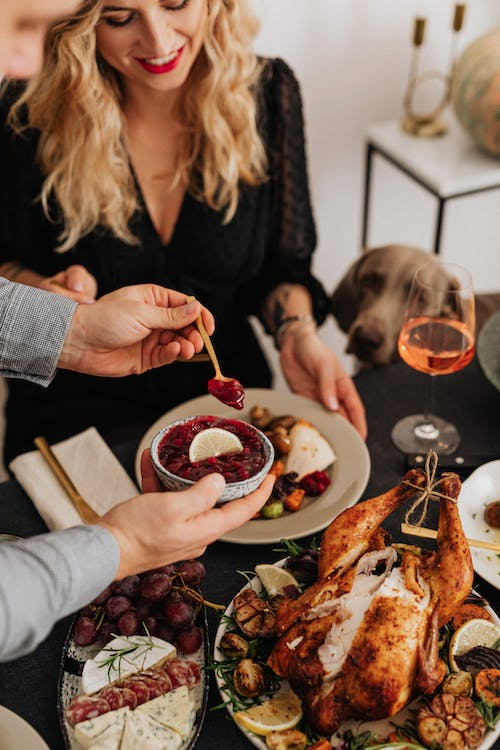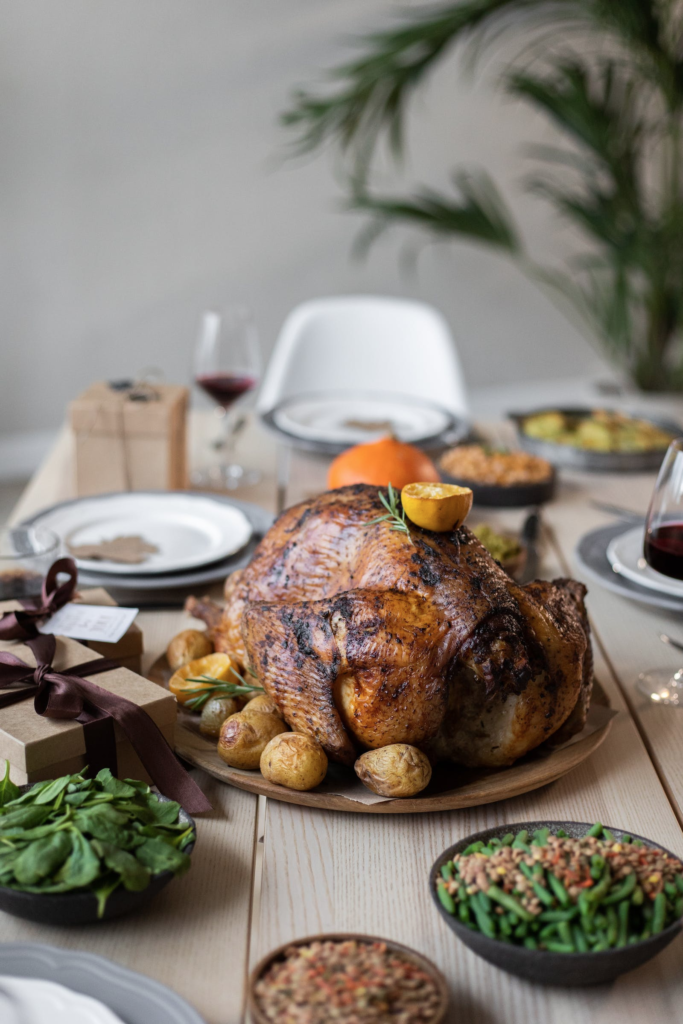As the weather gets colder and the days shorter, our minds turn to thoughts of Thanksgiving dinner. For many of us, this means a delicious feast with family and friends. But for some, it can also mean overeating and feeling guilty afterwards. If you’re worried about overeating this Thanksgiving, don’t be. With a little bit of planning and forethought, you can enjoy your holiday without overindulging. Here are five tips to help you avoid overeating on Thanksgiving.
1. Make a plan
When it comes to avoiding overeating on Thanksgiving, the first step is to make a plan. Sit down and map out what you’re going to eat and when. This will help you stay on track and prevent you from mindlessly snacking or overindulging.
Think about what you’re going to have for each meal, and make sure to include some healthier options. Balance is key, so don’t go overboard with the indulgent dishes. And be sure to give yourself time to digest in between courses by taking a walk or chatting with family and friends. Decide what you will and won’t eat before the big day. This will help you stay on track when tempted by all the delicious food.
By having a plan and being mindful of what you’re eating, you can enjoy all the delicious food this holiday has to offer without overdoing it.
2. Don’t go to Thanksgiving dinner hungry
If you’re anything like most people, the anticipation of a big Thanksgiving feast can be almost too much to bear. But before you dive headfirst into that turkey and stuffing, it’s important to remember one thing: don’t go to Thanksgiving dinner hungry!

Sure, it might seem like a good idea at the time. After all, if you’re already full when you sit down to eat, then you won’t be as tempted to overeat. But the truth is, being too full can actually lead to overeating as well. That’s because when you’re stuffed, your body is working hard to digest all that food and it can be difficult to know when to stop eating.
So instead of loading up on a pre-meal snack, try drinking a glass of water or tea and focus on eating slowly and mindfully during the meal. This way you’ll be more likely to listen to your body’s cues and stop eating when you’re truly satisfied.
3. Be mindful of your portions and Fill your plate with lighter fare first
When it comes to overeating at Thanksgiving, one of the best ways to avoid it is by filling your plate with lighter fare first. This means starting off with salads, vegetables, and other lighter items before moving on to the heavier stuff like stuffing and mashed potatoes. By doing this, you’ll be more likely to fill up on the healthier items and less likely to overindulge in the higher calorie dishes. Use a smaller plate and fill it up with mostly vegetables and a moderate amount of protein. And don’t forget to leave room for dessert!
4. Avoid processed foods and alcohol
One of the main reasons people overeat on Thanksgiving is because they fill up on processed foods. Processed foods are usually high in sugar, fat and calories, which can cause you to feel sluggish and bloated. Instead of filling up on processed foods, try to focus on eating whole, unprocessed foods. This includes things like fruits, vegetables, whole grains and lean proteins. By filling up on these types of foods, you’ll be less likely to overeat and you’ll also feel more satisfied. Drinking can lower your inhibitions and lead to overeating. Stick to water or unsweetened tea instead.

5. Listen to your body
Your body is smarter than you think it is. It knows when it’s had enough to eat and will let you know when you’ve reached that point. So, instead of mindlessly shoving food into your face, pay attention to your body’s cues and stop eating when you’re no longer hungry.
Your stomach will usually give you the first sign that it’s full. You might feel a little uncomfortable or “stuffed,” but that’s normal. Once you start feeling pain or extreme discomfort in your stomach, that’s when you know you’ve eaten too much.
In addition to paying attention to your stomach, also pay attention to how much food is on your plate. If your Thanksgiving feast is anything like mine, there’s always way more food than what one person could possibly eat. So before you start piling your plate high with food, take a second to think about how much you really need and want. There’s nothing wrong with taking smaller portions or leaving some food on your plate – trust me, there will be plenty more where that came from!
6. Pace yourself
When you finally sit down to enjoy the holiday meal, take your time! Savor each bite and chew slowly. This will help you feel fuller faster and prevent you from eating more than you need to feel satisfied. It takes about 20 minutes for your brain to register that you’re full, so take your time eating and enjoy each bite.

What to do if you overeat
If you find yourself overeating on Thanksgiving, there are a few things you can do to help mitigate the damage. First, drink plenty of water. This will help to flush your system and make you feel less bloated. Second, try to avoid any fatty or sugary foods for the rest of the day. These will only add to the problem and make you feel even worse. Third, get up and move around as much as possible. This will help to boost your metabolism and burn off some of the excess calories. Lastly, don’t beat yourself up about it. Everyone overindulges from time to time, and Thanksgiving is one of those times where it’s perfectly acceptable. Just vow to do better next time and enjoy the holiday!
Healthier alternatives to traditional thanksgiving foods
When it comes to Thanksgiving, we all know that the focus is on the food. From turkey and stuffing to pumpkin pie, it’s hard to resist the temptation of overeating. But, did you know that there are healthier alternatives to traditional Thanksgiving foods?
Here are some healthier alternatives to traditional Thanksgiving foods:
Turkey: Instead of a roasted turkey, try a grilled or baked turkey. Turkey is a lean protein and a good source of vitamins and minerals.
Stuffing: Instead of stuffing made with white bread, try a whole grain or vegetable-based stuffing. Whole grains are a good source of fiber and vitamins, while vegetables are a good source of vitamins, minerals, and antioxidants.
Pumpkin Pie: Instead of pumpkin pie made with sugar and cream, try a pumpkin pie made with honey and skim milk. Honey is a natural sweetener that contains antioxidants, while skim milk is low in fat and calories.
How to make Thanksgiving a healthier holiday for everyone
When it comes to making Thanksgiving a healthier holiday for everyone, there are a few things you can do. First, try to focus on eating more fruits and vegetables. This can be done by making sure there is a big salad or veggie dish on the table, or by serving fruit as a dessert. Secondly, make sure to cook with healthy fats like olive oil instead of butter. You can also use less sugar in recipes, or substitute in artificial sweeteners. Finally, try to get everyone moving by playing some fun games or going for a walk after the meal. By following these tips, you can make Thanksgiving a healthier holiday for everyone!
Conclusion
When it comes to Thanksgiving, there’s no need to overindulge. By following these five tips, you can avoid overeating and enjoy the holiday without feeling stuffed. Stick to smaller portions, eat slowly, and make sure to include plenty of fruits and vegetables on your plate. And most importantly, don’t forget to listen to your body – if you’re full, stop eating! With a little mindfulness, you can have a happy and healthy Thanksgiving.

